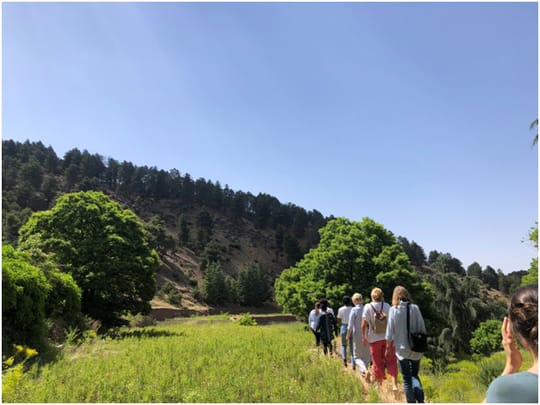What It Takes to Build a Nursery: Anya Karaman, Week 1

ABOUT TWENTY-FOUR HOURS AGO, I planted a tree. It was already taller than the other tree sprouts lined up next to it, looking like the leader of a small pack of children, still a child itself. I bent down and carefully grabbed it, brought it back to the freshly dug square hole in the ground, and looked to the four men standing around me for the next instructions.
First, remove the plastic covering the soil. Next, into the ground. Then, move the dug-up soil back into the hole. No need to move carefully here, just use a shovel or your feet or your hands to quickly move large piles of tanned dirt back into the earth. Pack the soil in, walking around the tree with your guide, a man who has worked on the commune for over forty years, like you two are dancing.
Finally, water it, and feel the weight of the large bucket suddenly come down on your arm. If you can’t hold it up on your own, someone will immediately step in and hold the bucket with you, helping you guide the flow of water.
This is what guides the progress of the rural commune of Setti Fadma: ritual, support, and action. The challenge of agricultural development hinges on fostering a sense of community, the feeling that no matter the project, it is driven, managed, and controlled by a larger purpose.
To plant this tree, I had to take the initiative to volunteer my time and the farmers stepped in to support me every step of the way. To propel agricultural development into new frontiers, we must ask ourselves what we can do for each other as much as we ask what we can do for the earth.
Time works differently in the rural communes of Al Haouz. There is enough awe with the present, wonder with the future, and curiosity about the past to push our agricultural development efforts somewhere new, somewhere better.
For now, you cannot spend your entire day in the shaded breeze of the mountains. For now, there is work to be done.